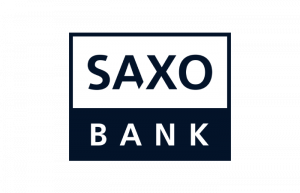Kraken vs Coinbase: Comparative Analysis From Trading Experts
In their deep dive into the cryptocurrency landscape, Traders Union offers a detailed comparison between Kraken and Coinbase, illuminating their strengths, nuances, and appeal to traders of varying preferences.

When selecting a crypto exchange, it’s crucial to consider several factors to ensure security, usability, and efficiency. The experts at Traders Union have diligently analyzed various exchanges using 11 essential criteria, aiming to offer traders a comprehensive perspective to make informed decisions. This article zeroes in on a comparison between two platforms: Kraken and Coinbase.
Kraken vs. Coinbase: Which Crypto Exchange is Right For You?
In the midst of the dynamic evolution of the cryptocurrency landscape, traders are frequently faced with a pressing dilemma: “Kraken or Coinbase – which exchange is the superior option?” Both exchanges are giants in the cryptocurrency arena, each offering a comprehensive range of functionalities designed for diverse user preferences. Delving into the intricacies of their offerings, from fee structures to user interface experiences, provides potential investors with a clearer roadmap. While Coinbase might appeal to some due to its particular advantages, Kraken holds its ground with its own unique strengths. Recognizing the nuances between the two becomes vital for anyone aiming to make well-informed decisions in the cryptocurrency domain. This comprehensive comparison is designed to guide traders and investors in making the optimal choice for their specific goals.
Overall Ranking
In the competitive realm of cryptocurrency exchanges, Coinbase manages to edge out Kraken in multiple facets. Notably, as TU analysts have noted, Coinbase takes the lead when it comes to regulation compliance, offering a diverse range of trading assets, providing educational resources, and ensuring top-notch customer support. Additionally, Coinbase often attracts users with its enticing promotional offers. On the other hand, Kraken isn’t left far behind; it garners attention with its competitive trading fee structure. Furthermore, seasoned traders frequently appreciate Kraken for its advanced charting tools that offer deeper market insights.
Trading Conditions of Coinbase and Kraken
Both platforms have their strengths. Kraken boasts more trading platforms and a lower initial deposit. Meanwhile, Coinbase provides a broader range of cryptocurrencies. A notable difference lies in the number of base account currencies available:
- Coinbase: Deposits in USD, EUR, GBP, and 6 cryptocurrencies.
- Kraken: USD, EUR, GBP, AUD, CAD, CHF, JPY, and 98 other cryptocurrencies are accepted.
Trading Assets and Fee Comparison
Kraken and Coinbase provide access to major cryptocurrencies like Bitcoin, Litecoin, Dogecoin, Uniswap, Cardano, and Stellar. However, only Kraken supports Ripple (XRP) trading for non-US residents and offers additional products like indices, futures, and margin trading, which Coinbase lacks.
Trading Fees: Coinbase tends to be pricier, especially for transactions made with debit or credit cards.
Non-Trading Fees: Both platforms allow free deposits, with Kraken imposing a $10 fee for certain deposit methods. Coinbase calculates withdrawal fees as a percentage of the withdrawal amount, while Kraken’s fees range from $0 to $35 for bank transfer withdrawals.
Comparative Analysis of Kraken and Coinbase in 2023
In 2023, while both Kraken and Coinbase showcase similarities in regulation, trading platforms, deposit methods, and the offering of major cryptocurrencies, there are notable differences. Traders Union experts lean slightly towards Coinbase, valuing its wider cryptocurrency access, standout educational features, and its lucrative affiliate program. However, Kraken doesn’t trail far behind. The platform typically has lower trading fees, although the gap isn’t markedly vast. Even though Coinbase boasts licensing across a plethora of states and presents additional two-factor authentication choices, Kraken attracts day traders with its sophisticated technical tools and is the exclusive platform between the two to provide margin trading.
Conclusion
The differences between Coinbase and Kraken are subtle yet significant for discerning traders. Both platforms bring their unique strengths to the table, which can influence a trader’s experience and success. TU, through its thorough research, aims to simplify these distinctions, hoping that traders can make informed decisions tailored to their specific needs. For those seeking a deeper dive into these platforms, along with broader insights into the cryptocurrency realm, Traders Union offers extensive resources and analyses.









